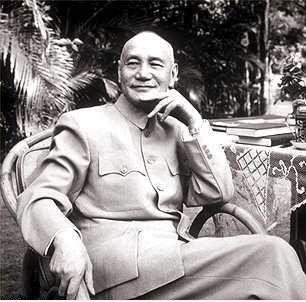there was an “ROC history as rewritten by CKS” thread by hokwongwei
forumosa.com/taiwan/viewtopi … 7#p1572767
I think it’s worth going through and understand a lot of “official information” out there, even in English, are twisted propaganda by CKS.
In reality, CKS was a gang member, and SYS found him useful as an assassin. CKS also faked his military training credentials and SYS eventually bought it and awarded his loyalty with being the principle of the Soviet sponsored Whampoa military school.
From there CKS controlled the KMT with the only army KMT really ever controlled to achieve personal political goals. In the end, he was no military genius and never left his gang/assassin ways behind.
As a military leader he never gained any real victories. His 2 northern expedition ended in a drawn out 3 way melee. If the Japanese didn’t get over zealous about exploiting the situation, Zhang Zuo-lin wouldn’t have aided Chiang, and Chiang was likely to face ultimate defeat.
His fight against the Japanese was poorly conceived and filled with disregard for human life. Under his order the KMT army breached the yellow river dam at Huayuankou, drawing close to a million innocent civilians while claiming it was done by Japanese bombers.
His anti-communist war ended him in Taiwan. He distrusted people more capable than him, and those favored by the Americans. CKS pulled them away from the front lines then micromanaged every single battle, unfortunately being a genuinely untalented military leader, that doomed the KMT military.
As a politician, he and his wife never believed in democracy or justice. He had no grasp over how to run the economy. He relied on secret police and the military to smooth things over.
Above all, he was really really full of himself, and as such was unable to listen to those who were desperately trying to help him succeed. He was great at pissing off allies, including the Americans. Oh, and because he wants people to buy into his savior image, he modified the crap out of facts/history.
To maintain that image, KMT built him a memorial hall, and declared it an historical building after 26 years. Every school had an CKS statue, every classroom had a CKS photo. They also had students singing a song about how amazingly awesome CKS was in elementary schools. One line goes like this:
“President Chiang, you are the savior of our race, and a great man of the world”


